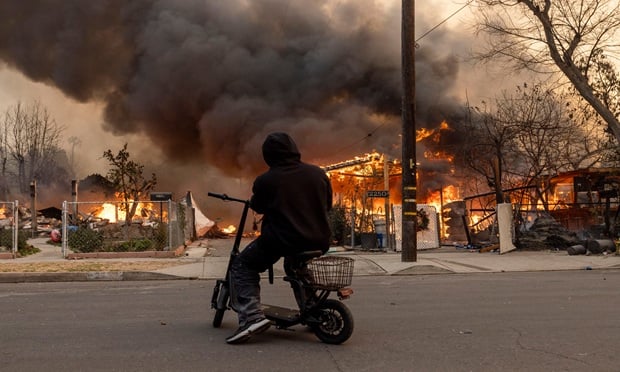 A recent Katrina-related trial in Mississippi that accused an insurer of bad faith, breach of contract, and other charges related to its claim-handling practices has ended with a favorable verdict for the defendant.
A recent Katrina-related trial in Mississippi that accused an insurer of bad faith, breach of contract, and other charges related to its claim-handling practices has ended with a favorable verdict for the defendant.
The case involved Prime Insurance Syndicate and one of their policyholders, whose home was heavily damaged when a large tree was blown onto his roof during Hurricane Katrina. The case is considered significant due to the fact that it is the believed to be one of the first jury verdicts in Mississippi that exonerated an insurer in a Hurricane Katrina claim.
Claims spoke with lead defense attorney Rick Bass, senior partner in the Jackson, Miss., office of Phelps Dunbar, LLP, to get a better understanding of the issues at play in the trial, the importance of having proactive catastrophe claim-handling practices, and how concern over a fair trial permeated the case.
What were the details surrounding this particular case?
BASS: In a nutshell, the case involved a homeowner's claim made against Prime, and against the mortgage lenders, who ended up settling a year before trial. The claim against Prime was initially for bad faith, denial, and delay in paying coverage. The claim was essentially for the remaining policy limits plus certain extra contractual damages that you're able to recover in Mississippi. For example, if there had been a breach, theoretically the policyholder could have recovered for emotional distress or any additional inconvenience or expense that they had if Prime had been found to have done something wrong in adjusting and paying the claim. But the jury found that there was no breach of contract.
What caused the disagreement and the resulting litigation?
BASS: It boiled down to a disagreement over the amount that was owed. The policy had, as most homeowners' polices do, an appraisal provision in it. Prime demanded appraisal, and so both parties appointed appraisers and an appraisal was done of the loss. Once that amount was agreed upon, Prime paid that amount within a month. However, the homeowner later fired his appraiser and then sued Prime.
The issue at hand was that, in the process of submitting a check, some of the paperwork was mishandled. This resulted in a delay of several months before the replacement check was issued, but was a question for the jury as to whose fault that was -- the insurer's or the policyholder's. Apparently, the jury either did not believe that the delay caused any problems for the plaintiff, or believed that it was the plaintiff's fault. In any case, the jury did not find the delay to be a breach of contract.
How did Prime's claim-handling strategies help its defense?
BASS: What I think resonated with the jury was that Prime had written about 900 policies in that area of Mississippi, and they sent a team down as soon as they could get in to assess the situation and to hire adjusters. They did not wait for claims to be made; they went down and determined that all of their policyholders were likely to have a claim. So they devoted their attention to trying to get adjusters on the ground to view the damage and to get checks out as soon as they could.
The policyholder's home was located just above Interstate 10, which runs along the Gulf Coast. Was there concern about getting a fair trial?
BASS: I know that there was a lot of speculation as to whether an insurer could get a fair trial in what was essentially Ground Zero for Katrina's landfall. The answer was, we certainly did. We had a wonderful judge in federal court, and a jury that I thought listened to the proof and absolutely was fair and unbiased. For example, the first question asked when we were going through [jury selection] was, 'How many of you had a Katrina claim?' Every single hand went up. We knew we were working with a group of folks who were greatly affected by Hurricane Katrina, and many of them had difficult experiences with their carriers.
However, I would say that anyone who had questions about the jury system on the Gulf Coast and in the federal courts should take heart from this. I don't know how many more Katrina claims are out there that have not been resolved -- and every case and jury is different -- but I certainly would not be afraid to try another case for an insurer on the coast.
Want to continue reading?
Become a Free PropertyCasualty360 Digital Reader
Your access to unlimited PropertyCasualty360 content isn’t changing.
Once you are an ALM digital member, you’ll receive:
- Breaking insurance news and analysis, on-site and via our newsletters and custom alerts
- Weekly Insurance Speak podcast featuring exclusive interviews with industry leaders
- Educational webcasts, white papers, and ebooks from industry thought leaders
- Critical converage of the employee benefits and financial advisory markets on our other ALM sites, BenefitsPRO and ThinkAdvisor
Already have an account? Sign In Now
© 2025 ALM Global, LLC, All Rights Reserved. Request academic re-use from www.copyright.com. All other uses, submit a request to [email protected]. For more information visit Asset & Logo Licensing.








